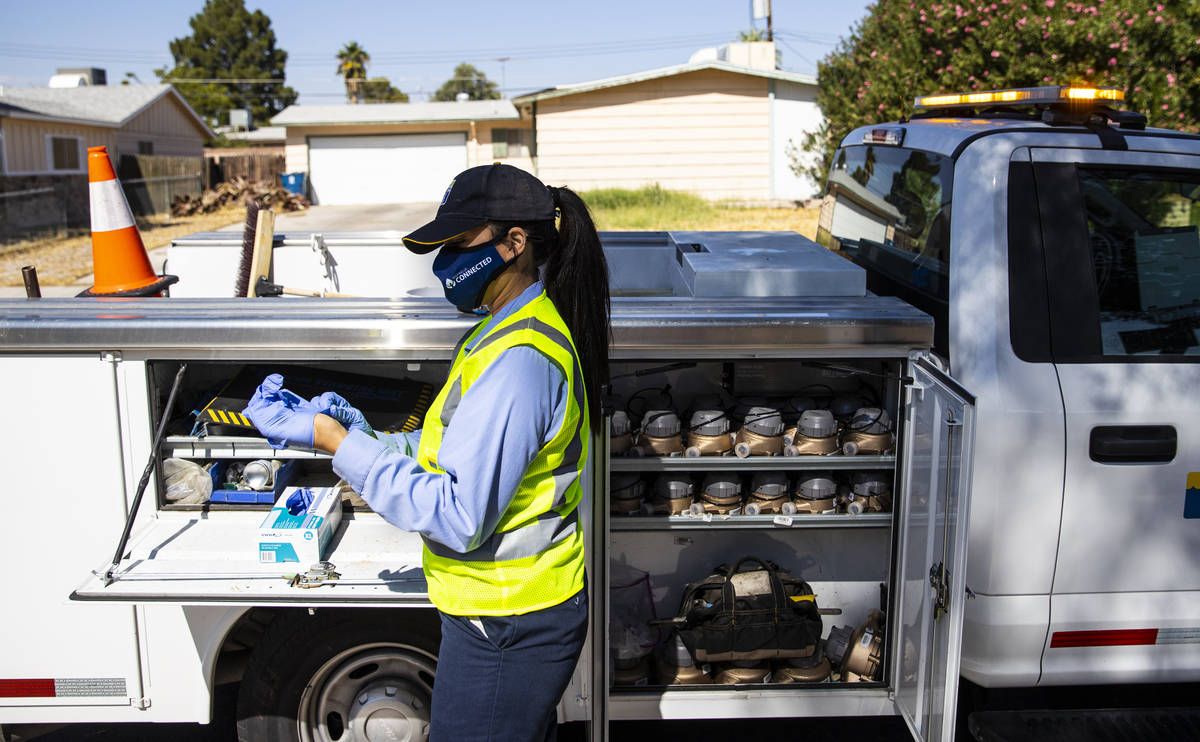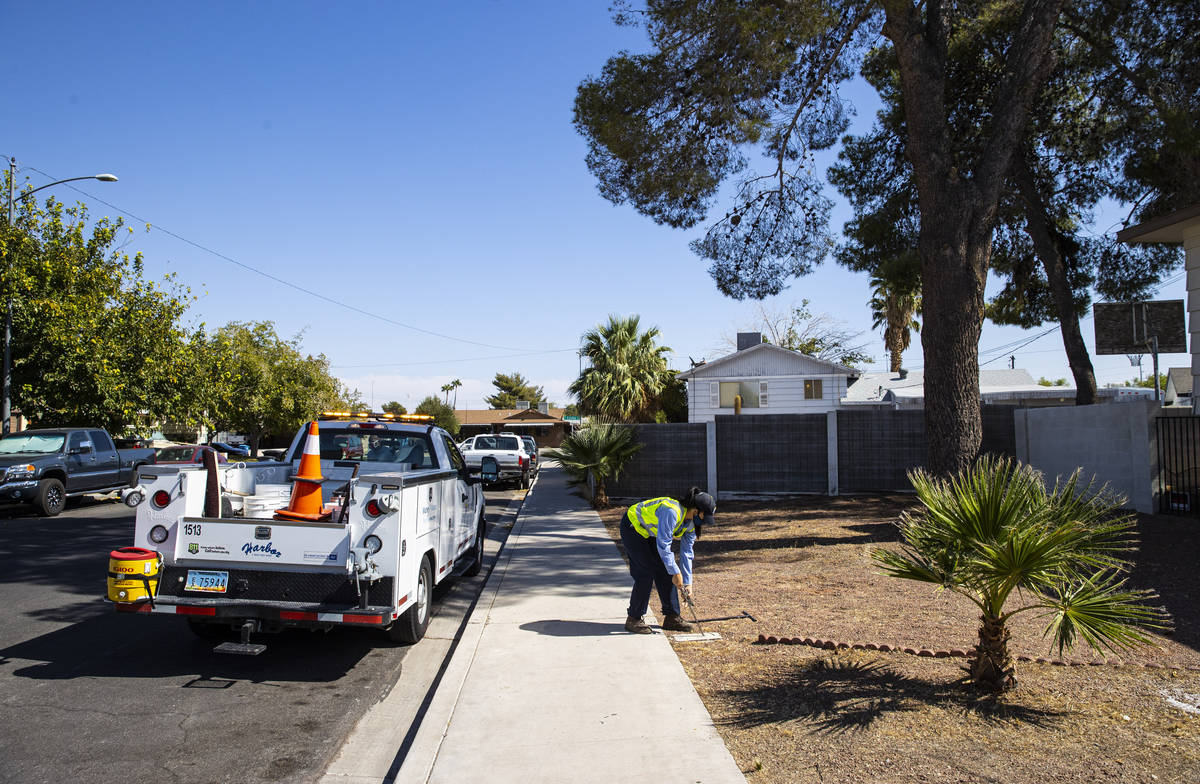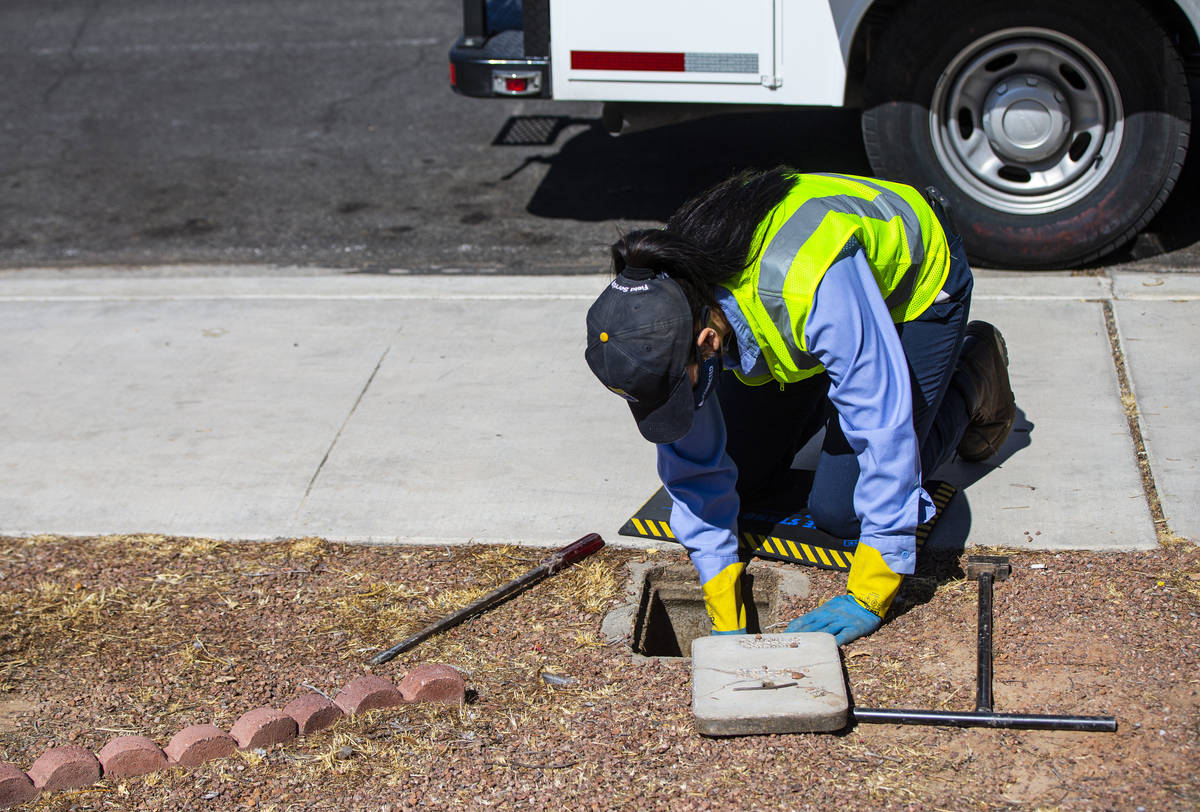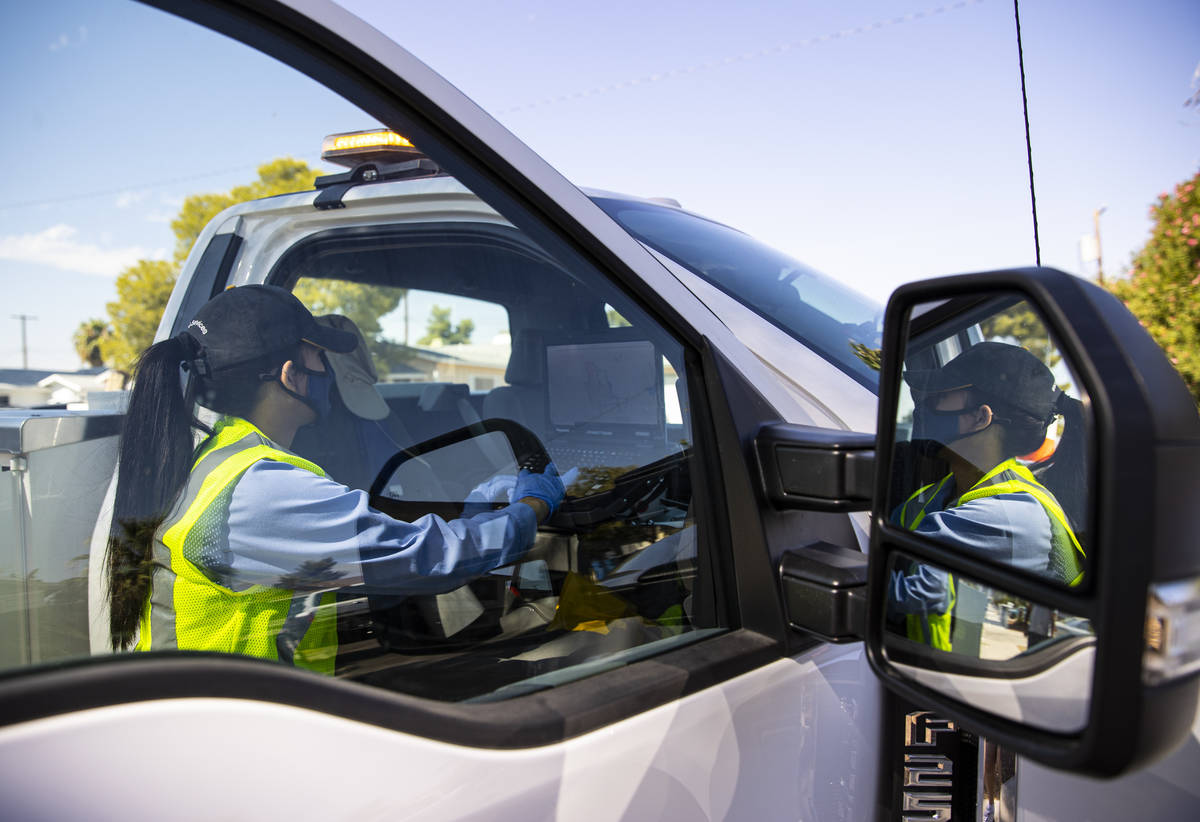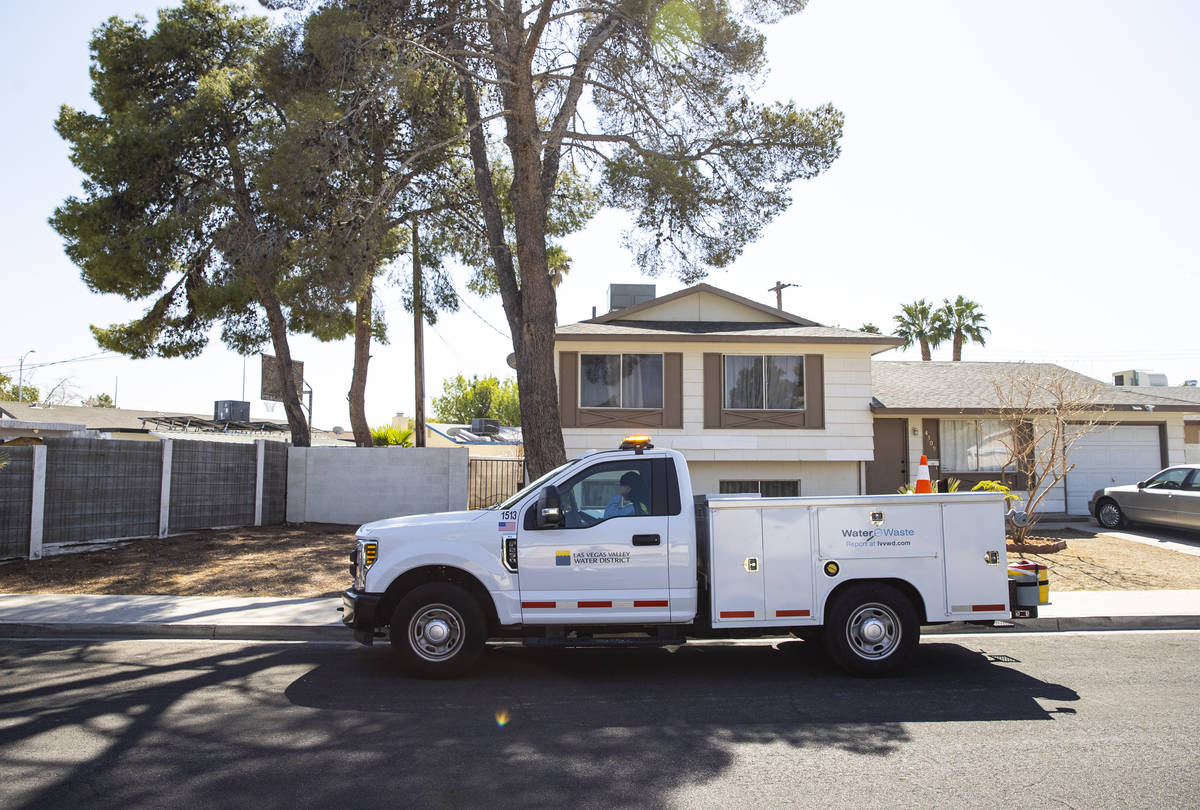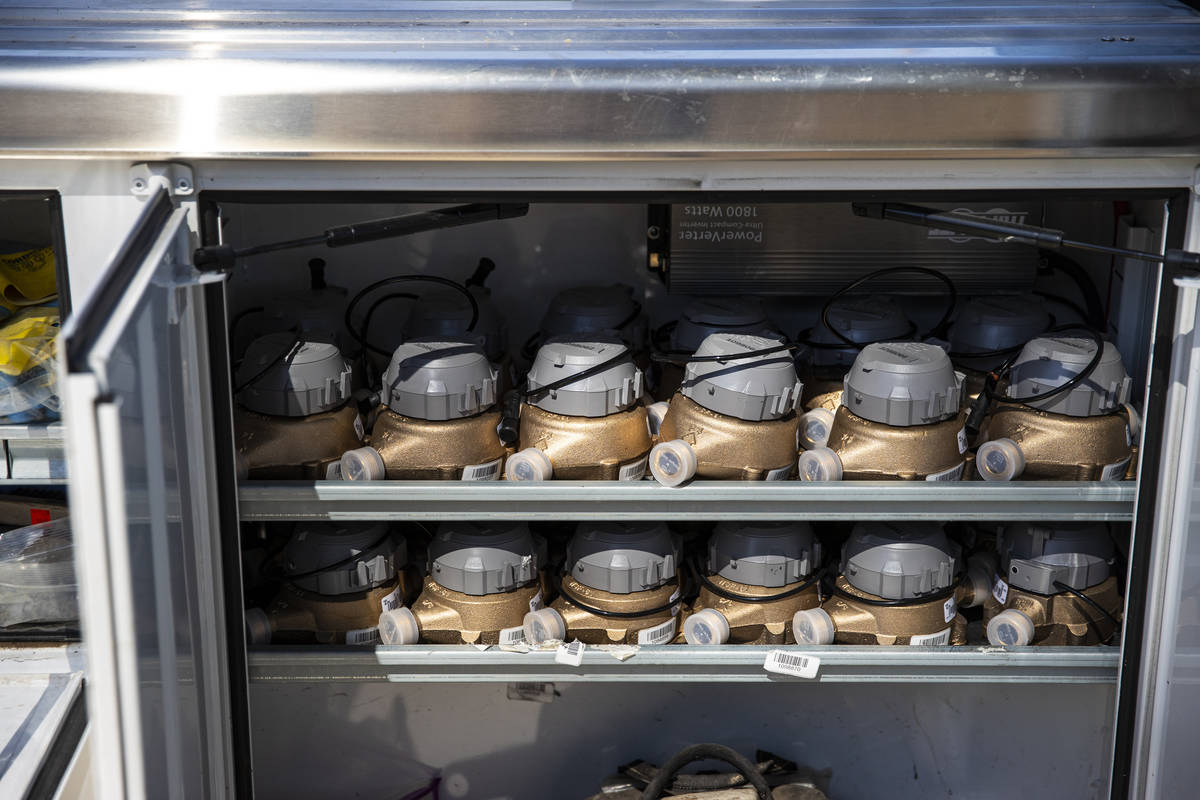Utility bills pile up, come due, as thousands remain out of work
For some, it was only a matter of time.
Thousands of Nevadans remain unemployed or otherwise unable to pay their bills since the state shutdown began in March. As a result, state utility companies self-imposed moratoriums on bill collections and service shutoffs to help out customers struggling with lost income.
Seven months into the shutdown, many Nevadans continue to trail on their bill payments. But moratoriums are now lifting and bills are coming due.
The Las Vegas Valley Water District ended its moratorium Sept. 1, and NV Energy will resume power shutoffs Oct. 22 for customers who aren’t struggling to pay because of the pandemic. Southwest Gas will continue its shutoff moratorium for the time being, though customers will owe their debts once it lifts.
“A moratorium is a Band-Aid: It delays payment; it doesn’t end the need for payment,” said Mark Wolfe, spokesman for the Washington, D.C.-based National Energy Assistance Directors Association, “and as you go through down the road, if this runs through March, families could end up owing a year’s worth of energy bills. They’ll never get out of the hole.”
$24.3B problem
Nearly one-third of all U.S. adults say they are struggling to pay for normal household expenses during the pandemic, according to the U.S. Census Bureau. Nevada trails only Louisiana and Mississippi among states with the highest percentage of adults struggling to pay their normal expenses — nearly 2 in 5 Nevadans, according to the census.
NV Energy told a regulatory body that 68,282 of its residential and small commercial customers were late on their payments as of Aug. 20, with nearly half at least 90 days overdue. At that time, the company had $29.5 million in arrears compared with $6.8 million at the same time last year.
A Las Vegas Valley Water District spokesman said about 30,000 of the roughly 400,000 customer accounts with the district are late on their bills, while cautioning that not all of those late customers are necessarily late because of the pandemic.
Nineteen states, plus Washington, D.C., have ordered statewide moratoriums on utility shutoffs due to nonpayment, according to the NEADA. Nevada is one of 15 states with some form of voluntary hold. An NEADA analysis of regulatory filings suggests unpaid gas and electric debts among U.S. households could total $24.3 billion or more by the end of the year.
Customers late on bills and utilities resuming collections are both symptoms of the same “societal problem” of the pandemic’s economic fallout, Wolfe said. He said the companies “can’t shut people off en masse” in the middle of a public health crisis without substantially hurting families, but at the same time, they can’t provide those services indefinitely without paying their own expenses through bill collections.
He advocated for another stimulus package that could assist families and utilities. On Tuesday, President Donald Trump tweeted he was ending negotiations with Democratic leaders over a new stimulus package until after the election.
“This is not a problem the utilities can solve. It’s a problem the federal government has to solve,” Wolfe said. “It’s too big, and if a quarter of the rate base can’t pay their bill, that serves the question of the utility’s viability.”
‘Not the first tool’
Nevada’s utility companies say they would rather work with Nevadans to keep them in service than resort to shutoffs.
The valley’s water service has shut off water to nine customers since lifting its moratorium on bill collections and shutoffs on Sept. 1, spokesman Bronson Mack said. Of those nine, most came after speaking with a property owner who reported there was not or should not be anyone living there.
“It’s not the first tool; it’s not even the second tool we use” to recoup payments, Mack said.
He said the district lifted its moratorium after speaking with customers on those available plans and to better automate some of the billing processes. Like NV Energy, the water district offers payment plans to keep the water running, Mack said.
NV Energy will resume shutting off power to overdue customers Oct. 22, with the exception of customers who claim financial hardship due to the pandemic, spokeswoman Jennifer Schuricht said. Overdue customers who have told the company they are not financially affected by the pandemic should receive a 10-day notice on their bill and a 48-hour notice by mail warning of a potential shutoff, she said.
Schuricht noted that shutoff-exempted customers still owe their bills and that NV Energy offers payment plans and energy assistance programs.
“If a customer is on one of our payment programs and honoring the conditions of the plan, they will not be disconnected,” she said.
Schuricht urged customers to reach out to the company, if they haven’t already, to indicate whether they are struggling because of the pandemic. The power company will resume collecting on bills from shutoff-exempted customers in November, although it may “adjust this timing if needed,” she said.
Southwest Gas will keep its shutoff moratorium in place “until the COVID-19 crisis improves,” and at that time bills will come due, spokeswoman Amy Washburn said.
Contact Mike Shoro at mshoro@reviewjournal.com or 702-387-5290. Follow @mike_shoro on Twitter.
Need help?
Southern Nevadans may have options if they're struggling to pay their utility bills:
- Southwest Gas customers can explore possible assistance by calling 877-860-6020 or visiting swgas.com/en/covid19.
- NV Energy customers can call 702-402-5555 or visit nvenergy.com/payment for information on payment plans. The company also lists several local resources online at nvenergy.com/covidhelp.
- Las Vegas Valley Water District customers can call 702-870-4194 to let the company know they're struggling to pay their bill. For more information visit www.lvvwd.com/customer-service/.
The federal coronavirus stimulus package passed earlier this year, known as the CARES Act, funds bill assistance for utilities or housing costs. This grant program is known as the CARES Housing Assistance Program, or CHAP, and it's available locally in Southern Nevada for gas and electric bills.
- All Clark County residents can visit helphopehome.org for additional information on eligibility and how to apply.
- North Las Vegas has its own application for residents that can be accessed at nlvcares.com and clicking on the link labeled "North Las Vegas CHAP: CARES Housing Assistance Program." A CHAP administrator for the city said, "Residents that have been financially impacted by COVID (laid off, reduced hours, furlough, loss of business income) can have their outstanding utility bills from March to now completely paid on their behalf via the CHAP program."
- Henderson residents may be eligible for the grant assistance and can visit cityofhenderson.com/covid19 for more information.




